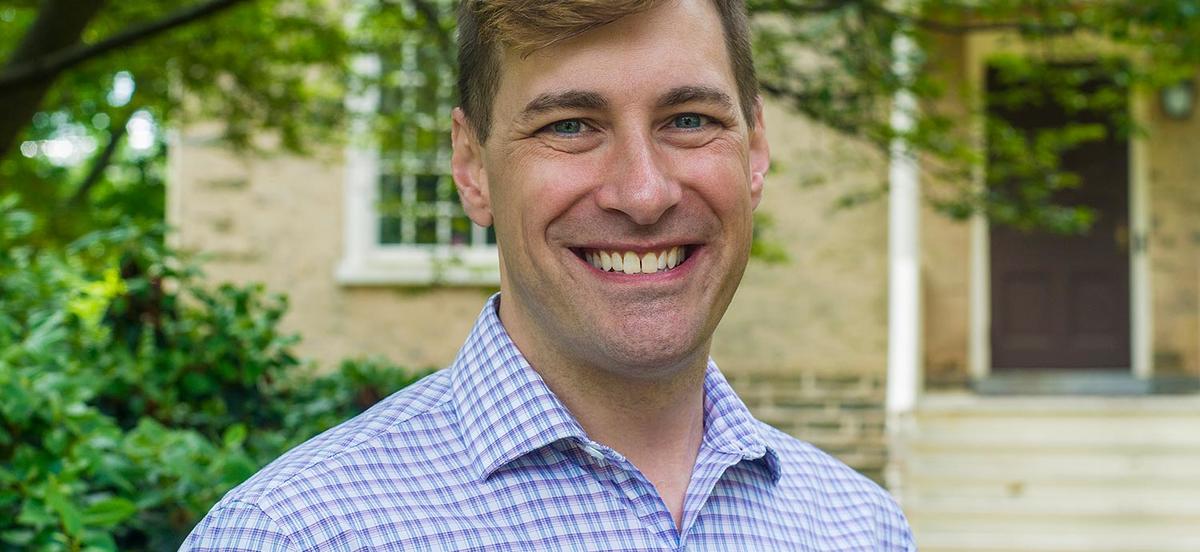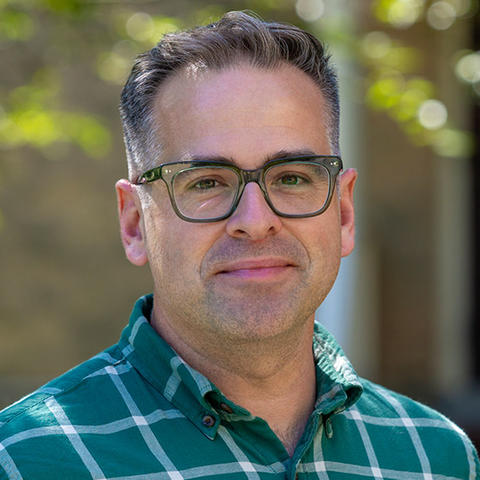Singing Together as a Community

Photo by Patrick Montero.
Details
As Singing City celebrates 75 years, Assistant Professor of Music Nathan Zullinger steered the effort to create the progressive choir’s community songbook.
When the Philadelphia-based all-volunteer Singing City choir saw their 75th anniversary looming on the horizon, they wrestled with how to mark the occasion. The always inclusive and progressive ensemble—founder Elaine Brown famously staged integrated performances in the Deep South during the Civil Rights era—could certainly have taken the traditional path by commissioning a new work for a big blowout concert downtown. Trouble is those pieces rarely get dusted off after their dazzling debut.
“Every group secretly hopes that they’re commissioning the next Handel’s Messiah, but that is not likely to happen,” says Nathan Zullinger, assistant professor of music and director of choral and vocal studies at Haverford, who worked as the associate conductor and director of community engagement for Singing City from 2021 to June 2023.
Instead, the ensemble wanted to create something that would last and be useful to others. Something that honored the choir’s diverse roots and community-oriented mission—which encourages audience participation at most concerts. So instead of a single blockbuster commission, the group opted for a number of small ones and created the digital-only Singing City Songbook.
Inside are 27 new works by composers representing a diverse array of backgrounds and styles, including many from the Philadelphia area. And, most uniquely, revenue generated from sales of the book and performances of the pieces therein, will pay for new works to be added, hopefully endowing the songbook with a long shelf life and a wider impact. Zullinger served as the editor, helping to select the composers, working with them as they submitted their material, and establishing guidelines to give the book a cohesive feel.
What were some of the factors you had to consider while putting the Songbook together?
Part of the goal is not just to do a concert for people and have them sit there and listen—it’s to get them involved and have them singing with you. So, we wanted pieces that were flexible enough that they could work in pretty much any setting with a broad range of voices, from trained to no training at all—people who are just singing for the enjoyment. Some of the pieces are more formal, and some of them are written so that if I stood up in front of a room full of people who had never met before, I could potentially say: “Repeat this line after me. Sing it back to me.” And from that beginning we could go on to make music together.
Of course, a songbook is somewhat theoretical. What happened when you hosted live performances of these pieces, with the composers in the room?
Well, we brought in a group of people who had not seen them before, and said, “Okay, we're gonna sing through 13 pieces tonight, and 14 pieces next time.” I'm proud to say that things really worked out, they really did. [The songbook] is something new and different, and I’m proud to offer a unique resource to the community. You know, it's really hard to do something in your field that you feel like “this is a real contribution. This is something that hasn’t been done before in this way.”
What’s so important about people singing along, as opposed to just watching you and the pros do their thing?
Community singing has probably existed in some form as long as human beings have been walking the face of the Earth. And there’s something very immediate about making music with other people and singing together. I also think that, particularly in this day and age, we’re in great danger of losing a lot of the community aspects of our culture — the things we do together not because we’re going to profit from them, but just because they bring us together. I think that it’s as important as it ever was, maybe more. And, of course, as a choral director, I’ve dedicated my life to facilitating people singing together.
—Patrick Rapa




